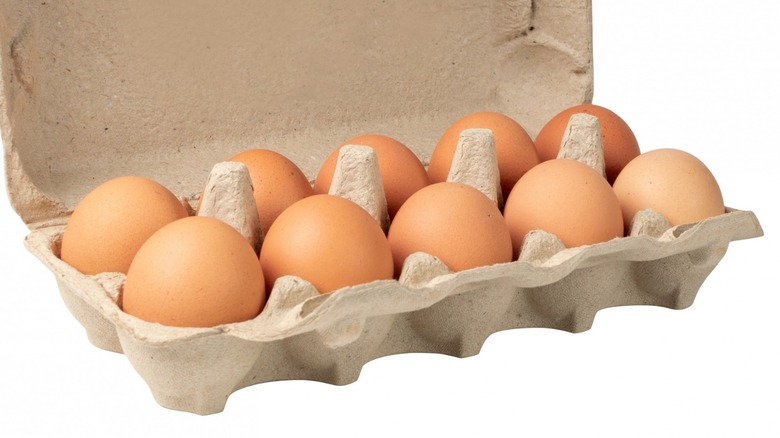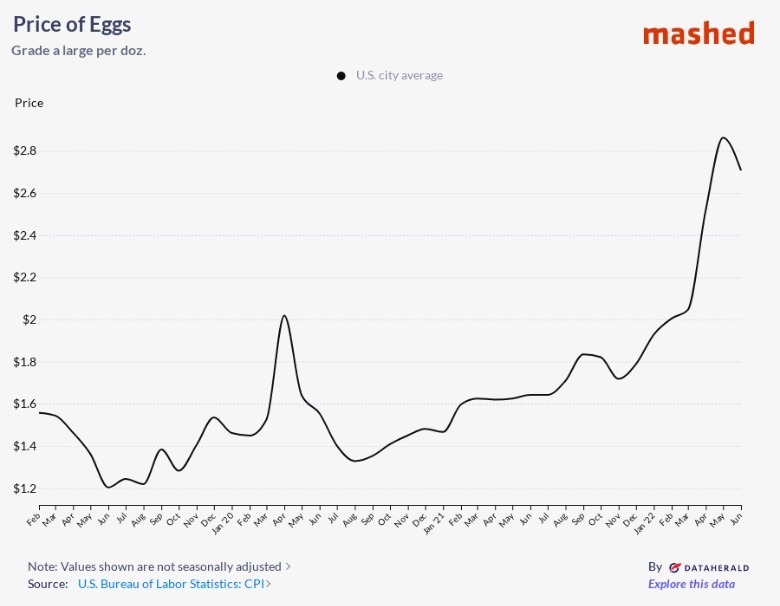The Price Of Eggs Has People Rethinking What To Have For Breakfast
After a summer of unrelenting heatwaves and mass inflation, Americans got a little relief in July. The average nationwide price of gas fell significantly for the first time in months, The New York Times reports. But the cost of just about everything else is still incredibly high. In fact, one study showed that food inflation is the worst it's been in more than 40 years. And rising food costs have forced many Americans to take on second jobs to pay for basic necessities, according to The Washington Post.
One of these necessities is eggs, whose prices are rising faster than it takes for you to heat up your skillet. Once a solid choice for affordable protein, eggs have become more and more costly in recent months.
Recent data on egg prices indicates that folks trying to save money on groceries may want to start thinking about a different breakfast staple.
The average dozen hit peak prices this summer
According to information from the U.S. Bureau of Labor Statistics (BLS), the price of eggs increased shortly after the new year. It reached its peak in May at a little over $2.86 per dozen, way up from the $1.55 average of February 2019. Furthermore, the cost of a dozen eggs on average increased from $1.51 in 2020 to $1.67 in 2021; that's a 10.6% increase.
There are several factors keeping food costs high, and they vary from product to product. For grains and other ground crops, the war in Ukraine is blocking farmers in the U.S. and beyond from accessing the Russian-exported nitrogen fertilizers that once accounted for 20% of the global reserve, per National Geographic. (And rising grain prices mean chickens are more expensive to feed, too.) When it comes to eggs, prices are rising for many of the same reasons that restaurants are struggling to sell chicken wings, including supply chain issues and an avian flu outbreak that killed 22 million birds (per the USDA).
According to the most recent Consumer Price Index Summary (CPI) from BLS, overall U.S. inflation rose 8.6% in June. Steady inflation is normal, but these numbers are significantly higher than the average 2% annual jump, per CNET. Bloomberg posits that current inflation trends may let up, but not enough to warrant a total sigh of relief. In the meantime, you might consider adopting an egg-bearing chicken.

